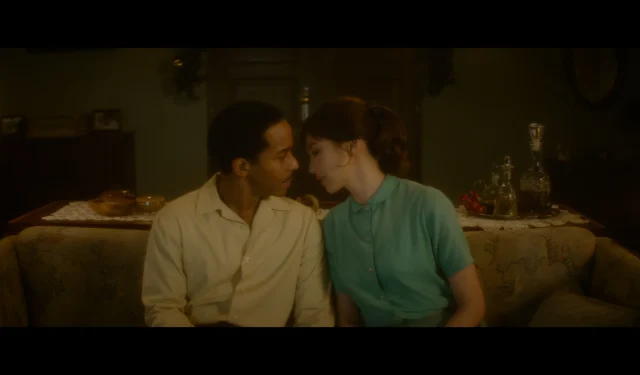The Complex Allure of Duke Johnson’s *The Actor*
Duke Johnson’s debut solo directorial feature, *The Actor*, captivates audiences with its surreal portrayal of identity and memory. The film, featuring the talented André Holland as a theater artist, unfolds the story of Paul Cole, who suffers from amnesia following a violent altercation with the enraged spouse of his lover. Though we encounter the aftermath rather than the event itself, Johnson skillfully provides enough context to illuminate the narrative’s origins.
Adapted from Donald E. Westlake’s thriller *Memory*, the screenplay, co-written by Johnson and Stephen Cooney, contrasts the novel’s brisk drama with a slower cinematic rhythm. In *The Actor*, Johnson immerses viewers in a dreamlike journey, one that leaves impressions but is ultimately elusive.
Paul’s Awakening: A Troubling Reality
As we first meet Paul Cole, he is awakening from an involuntary slumber, his vision blurred. The disorientation is palpable, a choice that invites the audience into his troubled perspective. A doctor’s probing question—his name—becomes a poignant moment of vulnerability as Paul grapples with the aftermath of a brutal attack. The details are thin, but it’s evident that he is fortunate to still be alive.
Set in 1950s America, the revelation of Paul’s affair adds a layer of scandal, touching on themes of race that remain only superficially explored. Although Holland imbues his character with depth and nuance, the script offers limited material for such complexities, leaving the broader tensions of society only lightly brushed upon.
A Journey Towards Love
Following his escape from a suburban environment that feels increasingly hostile, Paul is left with fragmented memories and minimal resources. He finds himself in a tranquil factory town, where chance leads him to Edna, a talented costume designer portrayed by Gemma Chan. Their romance blossoms amid the chaos of Paul’s life, adding a brighter dimension to the narrative.
Visual Depth and Surreal Atmosphere
Collaborating with cinematographer Joe Passarelli, Johnson envelops Paul’s experiences in a mesmerizing, dream-like aesthetic. The soft visuals and ethereal editing by Garret Elkins produce a reality that feels both enchanting and unsettling. The haunting score by Richard Reed Perry and evocative production design by Paulina Rzeszowska further entwine the audience in a world where truth and illusion blur seamlessly.
The Fragility of Identity
The film raises challenging questions about identity and reality—asking which version of Paul can be trusted: the one in Ohio or the one in New York? As he ventures back east, he confronts the stark contrasts and dissonances of his past self. Yet, despite its thought-provoking premise, *The Actor* occasionally struggles with pacing and coherence, leaving emotional stakes feeling flat or diffuse.
Moments of Connection and Artistic Reflection
*The Actor* does resonate with moments of humor and profound romantic exchanges, particularly in the chemistry between Holland and Chan. Their relationship adds a layer of depth and relatability amidst the confusion of Paul’s journey. While Johnson attempts to satirize the theatricality of the entertainment world through Paul’s experiences, certain elements of New York life remain underdeveloped.
Ultimately, *The Actor* presents a fascinating exploration of existential themes and identity. Although it elicits intellectual contemplation, the film occasionally falters in delivering an emotionally engaging experience, leaving audiences wishing for a more cohesive narrative.


